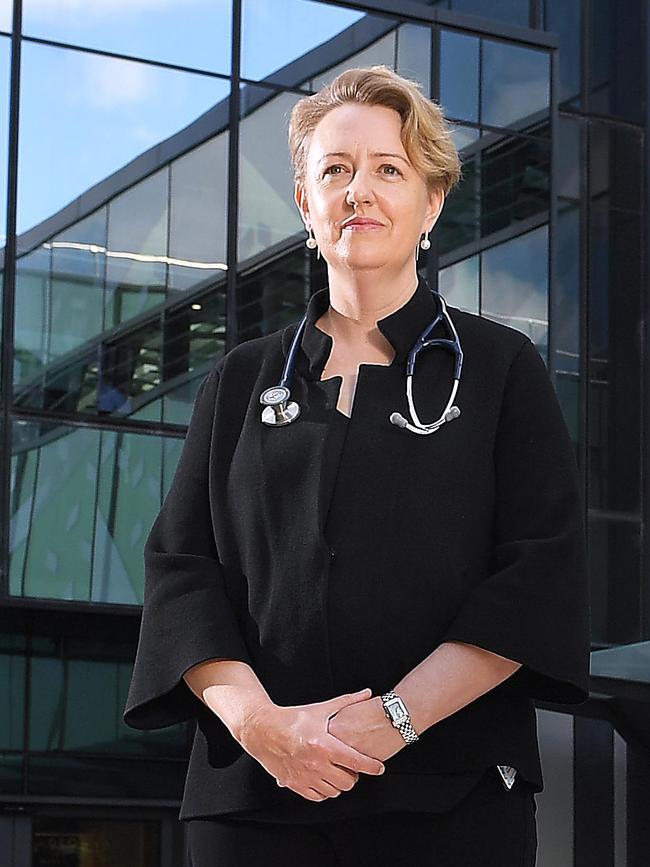RAH doctor Megan Brooks’ immunity for giving evidence in coronial ramping inquiry quashed in Supreme Court decision
A leading Adelaide doctor speaking out about the ramping crisis has lost all her immunity in a court decision – leaving her open to possible disciplinary action.
Police & Courts
Don't miss out on the headlines from Police & Courts. Followed categories will be added to My News.
A top doctor has had the “certificate of privilege” – which granted her immunity from disciplinary action if she gives evidence about the state’s ramping crisis – quashed in a Supreme Court decision.
Last month, the Supreme Court was asked to overturn the “certificate of privilege” issued to former RAH emergency department lead Dr Megan Brooks, by the Coroners Court.
State government lawyers said the Coroners Court had acted outside its power by indemnifying Dr Brooks from disciplinary action in exchange for evidence about ramping.
In his judgment on Wednesday, Justice Ben Doyle quashed the certificate and the ruling to evidence issued by the Deputy State Coroner in August 2024.
Justice Doyle said the Coroner made an error in law granting the certificate prior to, rather than after any answers were given by Dr Brooks.
He said there had not been any objection taken to questions which might have made Dr Brooks liable to a penalty.
“The questions posed merely elicited Dr Brooks’ attitude should such questions be asked,” Justice Doyle said.
“Indeed, they elicited her attitude to answering questions to the extent that her answers relied upon ‘official information’.”
Counsel for Dr Brooks previously told the court the protection was warranted – because the government had told their client it feared she would “attempt to embarrass the state without notice”.
Dr Brooks resigned from the RAH in December 2022, saying the state of its emergency department “offends the very humanity” of doctors working there.

She also said SA Health was bleeding cash due to “delusional” accounting that was being taken “seriously” by officials.
Dr Brooks had been called to give evidence about the deaths of Anna Vincenza Panella, Bernard Anthony Skeffington, and Graham Henry Jessett.
The Coroners Court is investigating why the trio of patients were left waiting extended in ambulance bays at respective hospitals.
However, Dr Brooks said SA Health had refused to permit her to reveal “official information”, meaning her evidence could breach the Public Sector Code of Ethics.
She declined to give evidence unless compelled or granted immunity, and the court issued the certificate to permit her to speak.
Alison Doecke KC, for the government, said the certificate was “too broad” and “lacked specificity”, and so had been “issued in error”.
She said much of what Dr Brooks might discuss was “in the public arena” already, meaning the certificate could not specify what should and should not earn protection.
Tom Cox KC, for Dr Brooks, said his client had every reason to be concerned about potential consequences if she gave evidence.
He said that, before Dr Brooks took the stand, government lawyers “asked if an affidavit could be provided”.
That affidavit, they said, should outline “what her evidence might be so that SA Health might receive some assurances about any potential disciplinary issues”.
In a subsequent letter, he said, the government said it would be “highly regrettable” if its “hands were tied” by an employee “voluntarily giving evidence”.
Mr Cox said government lawyers also expressed concerns Dr Brooks’ testimony would be “an attempt by her to embarrass the state without notice”, given her resignation comments.
Dr Brooks was due to give evidence in the inquest in January, the fate of which is now unknown.




